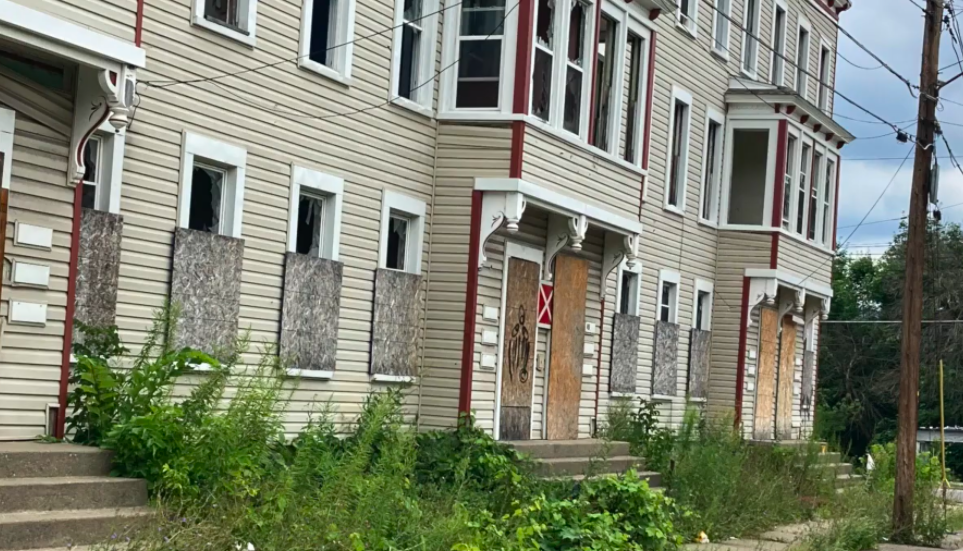On Oct. 1, the Broome Community Land Trust (BCLT) Youth Corps and the Riot Act, a new volunteer-run bookstore in the city of Binghamton, debuted “Housing is a Human Right” at the Bundy Museum of History and Art. The film gave an in-depth look into housing disparities in Binghamton and the rest of the United States.
“Housing is a Human Right” highlighted issues such as housing disparities, food insecurities and a lack of public transportation. Moreover, it discussed how our society has a rather inhumane outlook on homelessness. The film can only be described as eye-opening, thought-provoking and raw. As a line from the film said, “Our society accepts homelessness. And we demonize.” The film embodies how America looks at homelessness and poverty.
The BCLT is a local organization whose mission is to offer affordable housing in the greater Binghamton area. A land trust is unique in that a property is owned by a public nonprofit organization instead of a landlord. The film discusses how housing is viewed as an investment instead of a right. This viewpoint causes landlords to put less money into their properties, causing poor conditions within the homes. Multiple houses all over Binghamton that are owned by companies not based in the area are vacant as a result of lead paint and other uninhabitable conditions. However, a land trust can allow for more affordable housing to occur. The trust would be able to sell or rent out the properties at affordable prices, which minimizes homelessness and allows for the occupants to have a stronger voice.
In the film, Aviva Friedman, ‘14, Binghamton City Council representative for the fourth district, spoke about the benefits of land trusts.
“Land trusts provide accessible and affordable housing, where someone can own their own home,” Friedman said in the film. “I think this is one of the best ways to combat systemic poverty because if someone owns their own home, that can create intergenerational wealth.”
“Housing is a Human Right” showcased the hardships of finding affordable housing all over the country. It cited many communities coming together all over the country, especially in Oakland, California. This inspired a group of Black mothers to move into an occupied house and live there as a protest to shed light on the housing issues in Oakland. After a legal battle with the owners of the house, a land trust bought it, allowing the moms to live there without a problem.
There is also the issue of gentrification, especially in Binghamton and Johnson City, as a result of Binghamton University. According to Angela Riley, Binghamton City Council representative for the third district, the growing University presence in the form of the new School of Pharmacy and Pharmaceutical Sciences and luxury student housing and resulting businesses moving in have forced living costs to rise, pushing out current residents.
“In Johnson City, they put the [pharmacy school] and they encouraged a lot of new businesses that didn’t necessarily benefit or include the residents that were housed there,” Riley said. “In fact, some of them were displaced. You can renew a part of the community, but also include the residents that are also invested.”
The film then goes on to highlight the unfortunate relationship between housing, transportation and food insecurities. Unfortunately, this is the reality of many people in Binghamton. Public transportation was already lacking before the pandemic and now it’s even worse. A lack of private transportation also limits the amount of groceries one can take with them on the bus. Many participants in the film brought up this point, and is something only people that are forced to use public transportation have to deal with.
If you are interested in viewing the film, check out this link.



